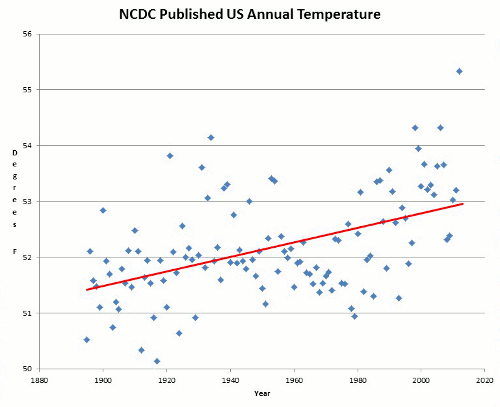According to the IPCC, climate change could halve yields from rain-fed crops in parts of Africa as early as 2020, and put 50 million more people worldwide at risk of hunger. [Pg. 2]
Upon further investigation they found the following in the IPCC report:
In other [African] countries, additional risks that could be exacerbated by climate change include greater erosion, deficiencies in yields from rain-fed agriculture of up to 50% during the 2000-2020 period, and reductions in crop growth period (Agoumi, 2003). [IPCC WGII, Page 448. 9.4.4]
Oxfam cite the IPCC, but the citation belongs to Agoumi. The IPCC reference his study properly:
Agoumi, A., 2003: Vulnerability of North African countries to climatic changes: adaptation and implementation strategies for climatic change. Developing Perspectives on Climate Change: Issues and Analysis from Developing Countries and Countries with Economies in Transition. IISD/Climate Change Knowledge Network, 14 pp. (PDF).
There is only limited discussion of “deficiencies in yields from rain-fed agriculture” in that paper, and its focus is not ‘some’ African countries, but just three: Morocco, Tunisia, and Algeria. It is not climate research. It is a discussion about the possible effects of climate change. All that the report actually says in relation to the IPCC quote, is that,
Studies on the future of vital agriculture in the region have shown the following risks, which are linked to climate change:Most interestingly, the study was not simply produced by some academic working in some academic department, for publication in some peer-reviewed journal. Instead, it was published by The International Institute for Sustainable Development (IISD). According to the report itself,
• greater erosion, leading to widespread soil degradation;
• deficient yields from rain-based agriculture of up to 50 per cent during the 2000–2020 period;
• reduced crop growth period;
The International Institute for Sustainable Development contributes to sustainable development by advancing policy recommendations on international trade and investment, economic policy, climate change, measurement and indicators, and natural resource management. By using Internet communications, we report on international negotiations and broker knowledge gained through collaborative projects with global partners, resulting in more rigorous research, capacity building in developing countries and better dialogue between North and South.Oxfam takes its authority from the IPCC. The IPCC report seemingly takes its authority from a bullet point in a paper published by an organisation with a declared political interest in the sustainability agenda that was the brainchild of former Canadian Prime Minister Brian Mulroney in 1988.
That the IPCC is citing non-peer-reviewed, non-scientific research from quasi governmental semi-independent sustainability advocacy organisations must say something about the dearth of scientific or empirical research. The paper in question barely provides any references for its own claims, yet by virtue of merely appearing in the IPCC’s 2007 AR4 report, a single study, put together by a single researcher, becomes “consensus science”.
The situation is simply insane. The IPCC are cited as producers of official science, yet they often appear to take as many liberties with the sources they cite, as those who cite the IPCC – such as Oxfam – go on to do. To ask questions about this process is to stand against ‘the consensus’, to be a ‘denier’, and to be willingly jeopardising the future of millions of people, and inviting the end of the world.
The popular view of the climate debate and politics is that the IPCC and scientists produce the science, which politicians and policymakers respond to, encouraged by NGOs, all reported on by journalists. But as the seemingly unfounded claims about the Himalayan glaciers and the North African water shortages show, this is a misconception. Science, the media, government, NGOs and supra-national political organisations do not exist as sharply distinct institutions. They are nebulous and porous. They merge, and each influences the interpretation and substance of the next iteration of their own product. The distinction between science and politics breaks down in the miasma.
If this process could be mapped, it would be no surprise if it was discovered that the IPCC was found to be citing itself through citing NGOs and Quasi-NGOs, and other non-peer-reviewed, not scientific literature. This is the real climate feedback mechanism.
In addition to this is the latest revelation of IPCC misinformation via the U.K.'s TimesOnline website, entitled: UN wrongly linked global warming to natural disasters. In it it states:
The United Nations climate science panel faces new controversy for wrongly linking global warming to an increase in the number and severity of natural disasters such as hurricanes and floods.
It based the claims on an unpublished report that had not been subjected to routine scientific scrutiny — and ignored warnings from scientific advisers that the evidence supporting the link too weak. The report's own authors later withdrew the claim because they felt the evidence was not strong enough.
The claim by the Intergovernmental Panel on Climate Change (IPCC), that global warming is already affecting the severity and frequency of global disasters, has since become embedded in political and public debate. It was central to discussions at last month's Copenhagen climate summit, including a demand by developing countries for compensation of $100 billion (£62 billion) from the rich nations blamed for creating the most emissions.
...The new controversy also goes back to the IPCC's 2007 report in which a separate section warned that the world had "suffered rapidly rising costs due to extreme weather-related events since the 1970s".It suggested a part of this increase was due to global warming and cited the unpublished report, saying: "One study has found that while the dominant signal remains that of the significant increases in the values of exposure at risk, once losses are normalised for exposure, there still remains an underlying rising trend."
The Sunday Times has since found that the scientific paper on which the IPCC based its claim had not been peer reviewed, nor published, at the time the climate body issued its report.
When the paper was eventually published, in 2008, it had a new caveat. It said: "We find insufficient evidence to claim a statistical relationship between global temperature increase and catastrophe losses."
Despite this change the IPCC did not issue a clarification ahead of the Copenhagen climate summit last month. It has also emerged that at least two scientific reviewers who checked drafts of the IPCC report urged greater caution in proposing a link between climate change and disaster impacts — but were ignored.
The claim will now be re-examined and could be withdrawn....The academic paper at the centre of the latest questions was written in 2006 by Robert Muir-Wood, head of research at Risk Management Solutions, a London consultancy, who later became a contributing author to the section of the IPCC's 2007 report dealing with climate change impacts. He is widely respected as an expert on disaster impacts.
Muir-Wood wanted to find out if the 8% year-on-year increase in global losses caused by weather-related disasters since the 1960s was larger than could be explained by the impact of social changes like growth in population and infrastructure.
...Muir-Wood was, however, careful to point out that almost all this increase could be accounted for by the exceptionally strong hurricane seasons in 2004 and 2005. There were also other more technical factors that could cause bias, such as exchange rates which meant that disasters hitting the US would appear to cost proportionately more in insurance payouts.
Despite such caveats, the IPCC report used the study in its section on disasters and hazards, but cited only the 1970-2005 results.
The IPCC report said: "Once the data were normalised, a small statistically significant trend was found for an increase in annual catastrophe loss since 1970 of 2% a year." It added: "Once losses are normalised for exposure, there still remains an underlying rising trend."
Muir-Wood's paper was originally commissioned by Roger Pielke, professor of environmental studies at Colorado University, also an expert on disaster impacts, for a workshop on disaster losses in 2006. The researchers who attended that workshop published a statement agreeing that so far there was no evidence to link global warming with any increase in the severity or frequency of disasters. Pielke has also told the IPCC that citing one section of Muir-Wood's paper in preference to the rest of his work, and all the other peer-reviewed literature, was wrong.
He said: "All the literature published before and since the IPCC report shows that rising disaster losses can be explained entirely by social change. People have looked hard for evidence that global warming plays a part but can't find it. Muir-Wood's study actually confirmed that."
Despite this Professor Jean-Pascal van Ypersele, a climatologist at the Universite Catholique de Louvain in Belgium, who is vice-chair of the IPCC, said: "We are reassessing the evidence and will publish a report on natural disasters and extreme weather with the latest findings. Despite recent events the IPCC process is still very rigorous and scientific."
I'm not sure who the Professor is now trying to convince more, the increasingly sceptical public or himself.














No comments:
Post a Comment